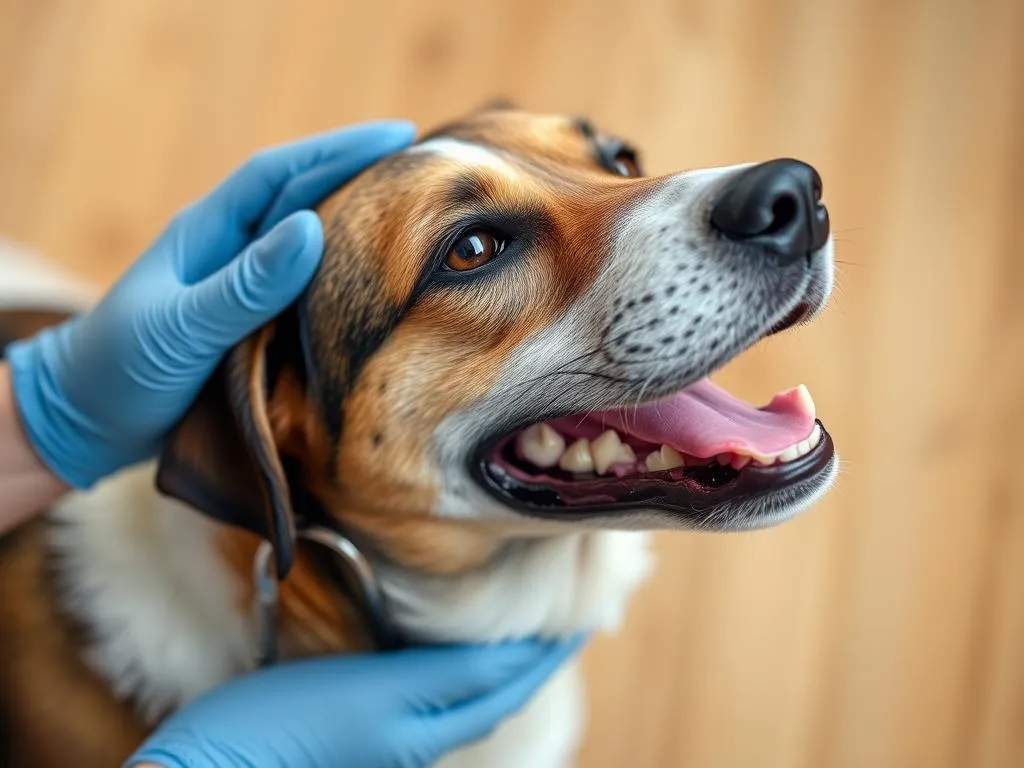
Introduction
Dog health care is a crucial aspect of pet ownership that ensures our furry companions live happy, healthy lives. Among various health issues, ear infections are particularly common and can lead to significant discomfort for dogs if not addressed promptly. Understanding the best dog ear infection medicines is essential for effective treatment and prevention.
Ear infections in dogs can arise from several factors, including bacteria, yeast, allergies, and even foreign objects. Recognizing the signs and symptoms early can make a significant difference in your dog’s health and comfort. In this article, we will delve into the causes, symptoms, treatment options, and the best medicines available for ear infections in dogs.
Understanding Dog Ear Infections
What Are Ear Infections?
Ear infections, or otitis, are classified into three main types:
-
Otitis Externa: This is the most common type, affecting the outer ear canal. It often results from moisture, allergies, or foreign debris.
-
Otitis Media: This type affects the middle ear and can occur as a progression from otitis externa if left untreated. It may lead to more severe complications.
-
Otitis Interna: This type involves the inner ear and can lead to serious health issues, including balance problems and neurological signs.
Ear infections develop in dogs when the normal balance of microorganisms in the ear is disrupted, allowing pathogens to flourish and cause inflammation.
Causes of Ear Infections
Several factors can contribute to the development of ear infections in dogs:
-
Bacterial Infections: The most common culprits are Staphylococcus and Streptococcus bacteria, which can trigger inflammation and infection.
-
Yeast Infections: Malassezia yeast is often found in the ear canal and can overgrow, especially in moist environments.
-
Allergies: Both food and environmental allergies can cause inflammation and increase the risk of infections.
-
Foreign Objects and Wax Buildup: Debris, dirt, or excessive earwax can create an environment conducive to infection.
-
Other Health Conditions: Conditions like hypothyroidism or autoimmune diseases can predispose dogs to ear infections.
Risk Factors
Certain factors can increase a dog’s likelihood of developing ear infections, including:
-
Dog Breeds Prone to Ear Infections: Breeds with floppy ears, such as Cocker Spaniels and Basset Hounds, are more susceptible due to reduced air circulation.
-
Environmental Factors: Humidity and exposure to water can increase infection risk, particularly after baths or swimming.
-
Grooming Practices: Improper ear cleaning or neglecting routine grooming can lead to buildup and infections.
Recognizing Symptoms of Ear Infections
Common Symptoms
Recognizing the signs of an ear infection is vital. Common symptoms include:
-
Excessive Scratching or Rubbing of Ears: Dogs may scratch or rub their ears against furniture to relieve discomfort.
-
Unpleasant Odor from the Ear: A foul smell is often a tell-tale sign of infection.
-
Redness and Swelling in the Ear Canal: Inflammation can cause visible redness and swelling.
-
Discharge from the Ear: This may vary in color and consistency, often indicating the type of infection.
-
Behavioral Changes: Dogs with ear infections may become irritable or lethargic due to discomfort.
When to See a Veterinarian
If you notice any of these symptoms, it’s important to consult a veterinarian. Signs that require immediate attention include:
- Severe pain or discomfort
- Persistent scratching that leads to sores
- Unusual discharge or blood from the ear
Professional diagnosis is crucial for determining the underlying cause and initiating appropriate treatment.
Diagnosis of Ear Infections
Veterinary Examination
During a veterinary visit, expect a thorough examination of your dog’s ears. The veterinarian will typically perform:
-
Ear Swabs: This involves taking samples from the ear canal to identify the type of infection.
-
Cultures: In some cases, cultures may be sent for further analysis to determine the specific bacteria or yeast involved.
Importance of Accurate Diagnosis
An accurate diagnosis is essential for effective treatment. Differentiating between bacterial and yeast infections, for example, will influence the choice of medications. Tailoring treatment to the specific cause can lead to faster recovery and better outcomes.
Treatment Options for Dog Ear Infections
Home Remedies and Preventive Care
While it’s crucial to consult a veterinarian for serious infections, some home remedies and preventive measures can aid in ear health:
-
Cleaning Techniques: Use a vet-recommended ear cleaner to gently clean the ear canal. Avoid using cotton swabs, as they can push debris further in.
-
Natural Remedies: Some natural options, like diluted apple cider vinegar and coconut oil, can have antimicrobial properties. However, always consult your vet before trying any new treatments.
-
Regular Ear Cleaning: Establish a routine for cleaning your dog’s ears, especially after baths or swimming, to prevent moisture buildup.
Prescription Medications
When it comes to treating ear infections, your veterinarian may prescribe:
-
Antibiotics: These are used to treat bacterial infections. Common options include amoxicillin or cephalexin.
-
Antifungals: If a yeast infection is diagnosed, medications like ketoconazole or clotrimazole may be recommended.
-
Anti-inflammatory Medications: These can help reduce swelling and pain, improving your dog’s comfort during recovery.
Over-the-Counter Medications
There are effective over-the-counter options for mild cases of ear infections:
-
Ear Drops with Hydrocortisone: These can alleviate inflammation and itching.
-
Antiseptic Ear Cleansers: Products containing chlorhexidine can help maintain ear health and prevent infections.
While these options can be useful, it’s important to monitor your dog’s condition and consult with a veterinarian if symptoms persist.
The Best Dog Ear Infection Medicines
Top Prescription Medications
When it comes to the best dog ear infection medicines, several prescription options stand out:
-
Otomax: This is a popular choice that combines an antibiotic, antifungal, and anti-inflammatory in a single ear drop. It’s effective for treating otitis externa caused by bacteria and yeast.
-
Tresaderm: Another combination medication that treats both bacterial and yeast infections while also reducing inflammation.
-
Clotrimazole: An antifungal medication often prescribed when yeast infections are suspected.
Always discuss potential side effects with your veterinarian, as some dogs may experience irritation or allergic reactions.
Recommended Over-the-Counter Options
For those looking for effective over-the-counter treatments, consider:
-
Zymox Ear Solution: A well-regarded option that contains natural enzymes to help fight infections without the need for antibiotics.
-
Vet’s Best Ear Relief Wash: This solution combines natural ingredients like aloe and witch hazel to soothe and clean the ear canal.
-
Pet MD Ear Cleaner: An antiseptic solution that helps remove wax and debris while preventing infections.
When using over-the-counter products, always follow the dosage instructions carefully and monitor your dog for any adverse reactions.
Comparison of Products
| Product Name | Type | Effectiveness | Price Range | Availability |
|---|---|---|---|---|
| Otomax | Prescription | High | $$ | Vet clinics only |
| Tresaderm | Prescription | High | $$ | Vet clinics only |
| Clotrimazole | Prescription | Moderate to High | $ | Vet clinics only |
| Zymox Ear Solution | OTC | High | $$ | Online/Pet stores |
| Vet’s Best Ear Wash | OTC | Moderate | $ | Online/Pet stores |
| Pet MD Ear Cleaner | OTC | Moderate | $ | Online/Pet stores |
Preventing Ear Infections in Dogs
Best Practices for Ear Care
Prevention is key in maintaining ear health. Here are some best practices:
-
Routine Cleaning Guidelines: Clean your dog’s ears regularly, especially if they are prone to infections. Use a vet-recommended cleanser and follow proper cleaning techniques.
-
Importance of Drying Ears: After bathing or swimming, make sure to dry your dog’s ears thoroughly to prevent moisture buildup.
Lifestyle Adjustments
Making lifestyle adjustments can also help prevent ear infections:
-
Dietary Considerations: If your dog has allergies, consider a hypoallergenic diet. Consult your veterinarian about potential allergens in your dog’s food.
-
Environmental Management: Keep your home clean and reduce exposure to allergens, such as dust and pollen, especially during peak allergy seasons.
Regular Vet Check-Ups
Regular veterinary visits are crucial for early detection and prevention of ear infections. Your veterinarian can provide valuable insights into your dog’s ear health and recommend preventive measures tailored to your pet’s needs.
Conclusion
Addressing ear infections in dogs is an essential part of responsible pet ownership. Timely recognition of symptoms and appropriate treatment using the best dog ear infection medicines can significantly improve your dog’s quality of life. Remember, while some over-the-counter options may provide relief, consulting with a veterinarian for a personalized treatment plan is always the best approach.
By incorporating preventative care practices and maintaining regular vet check-ups, you can help keep your dog’s ears healthy and infection-free. Always prioritize your furry friend’s health by staying informed and proactive about their care.









